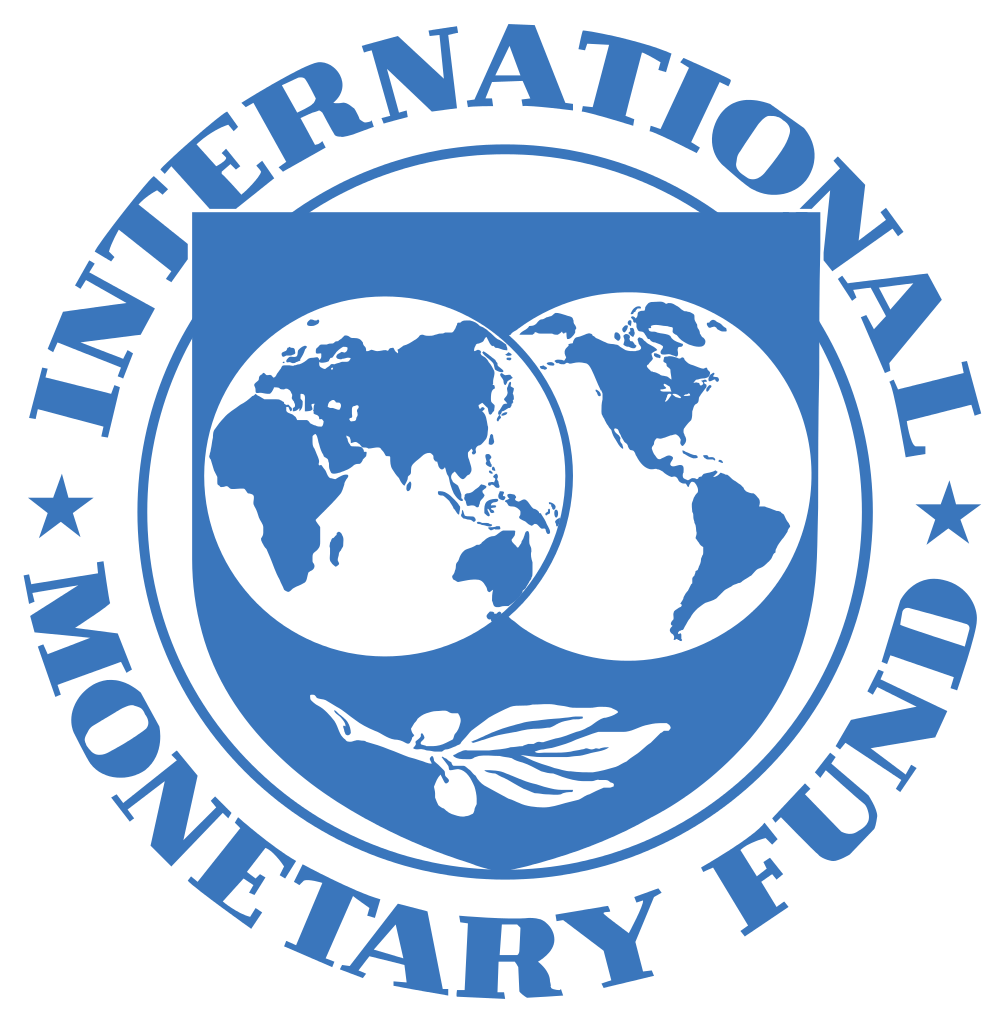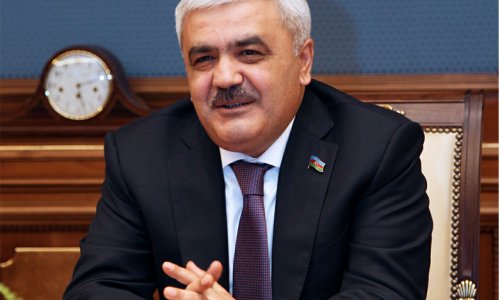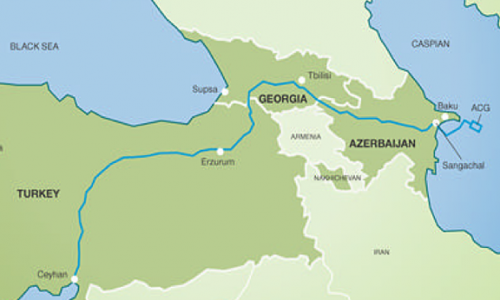A mission of the International Monetary Fund (IMF) led by Raja Almarzoqi visited Baku on June 2-8 to assess macroeconomic developments and prepare for the Article IV Consultation mission in December 2015. At the conclusion of the visit, Mr. Almarzoqi issued the following statement:
"Since late 2014, the Azerbaijani economy has been hit by the steep decline in oil prices, the strength of the U.S. dollar, and the wave of currency depreciations in the region that led to a sizable devaluation of the manat in February.
The devaluation has improved the government’s balance sheet but raised financial vulnerability concerns, following the sharp rise in dollarization and affecting banks’ capital and manat liquidity.
The Central Bank of Azerbaijan (CBA) reserves have broadly stabilized since mid-April, covering now a still comfortable 7 months of imports (external buffers including the oil fund amount to about 35 month of import cover).
"The near-term macroeconomic outlook has deteriorated considerably. Non-oil GDP growth is expected to decelerate to 3.5 percent this year as the sizable fall in export revenue and the slow down in public investment will spillover in the private sector demand, already weakened by some loss of confidence after the devaluation.
Some recovery in oil prices next year should help bring the non-oil growth to nearly 4.5 percent in 2016.
Inflation is likely to reach 8.5 percent in 2015, due to lower demand and government’s action to prevent price increases early this year.
With low oil prices, the current account surplus will narrow to 5 percent of GDP while the fiscal balance will swing into a deficit of about 7 percent of GDP.
A sharp and possibly sustained decline in GDP cannot be ruled out if oil prices fall further or the post-devaluation stress in the banking system is larger than anticipated. "The mission supports the government’s plan to adjust fiscal spending to the new reality of substantially lower oil prices. The envisaged under-execution of the approved 2015 budget and the plans to present to the parliament a 2016 budget based on an oil price of $50 per barrel will help limit oil fund withdrawals, reduce risks of post-devaluation inflationary pressures, and bring public investment to more sustainable levels, consistent with capacity constraints and a strengthened focus on project efficiency.
The implementation of recommendations from the recently concluded public expenditure and financial accountability assessment with the World Bank along with the submission of draft legislation to parliament in the Fall 2015 to put in place a pension reform consistent with recent IMF technical assistance (TA) will bring credibility to the medium-term fiscal consolidation strategy. "Since the February devaluation, the CBA has tightly managed the exchange rate and mixed forbearance on widened net open positions and on restructuring of loans with proactive measures to support financial stability. Supervision is hampered by, among other factors, rules limiting the intrusiveness of on-site inspection and by subordinated loans to IBA which place the CBA in the awkward position of being a part-owner in an institution it supervises.
While the recent devaluation has helped restore competitiveness, there is a need to preserve reserves going forward and to maintain private sector confidence. To this end, staff recommends a gradual move toward greater exchange rate flexibility in the medium term. The IMF stands ready to support the authorities’ effort to develop the forex market and build capacity at the CBA to enable an eventual move to inflation targeting. "Strengthening regulations and stepping up supervision in line with the Financial Sector Assessment Program (FSAP) recommendations will be essential to preserve financial stability.
Current forbearance on net open positions and capital requirements should be wound down as soon as possible. Other priorities include legal changes to allow better supervision and bank resolution, improvements to risk monitoring, and restructuring of the IBA in line with internationally accepted principles to pave the way for the downsizing and transparent privatization of the bank in due course.
"The difficult external environment has heightened the need to accelerate progress towards the government’s private-sector-led diversification objective. Private investment can help mitigate the adverse short-term effects of the fiscal consolidation but this will require reforms to improve governance, ease the costs of doing business, as well as removing barriers to competition and the very costly customs procedures. Further efforts are needed to improve government effectiveness, broaden anti-corruption efforts, and strengthen the rule of law and the independence of the judiciary.
"The mission welcomes ongoing steps to improve fiscal and external sector statistics in line with international standards. Strengthening the budget classification and disseminating International Investment Position (IIP) data would allow policy makers and investors to make better-informed decisions. "During the visit, the mission held discussions with senior government officials and representatives of the private sector and the diplomatic community. The team thanks the authorities for their hospitality and constructive discussions
www.ann.az
Follow us !











